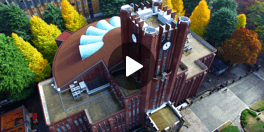教授
PENNINGTON, Miles
Professor
PENNINGTON, Miles

- 先端表現情報学コース
- アジア情報社会コース
研究テーマ
- デザイン先導イノベーション
- 区分:
- 学環所属(基幹・流動教員)
- Emerging design and informatics course
- ITASIA Program
Research Theme
- Design Thinking
- Position:
- III Faculty (Core & Mobile)
- 略歴
1992年 Royal College of Art(RCA)イノベーション・デザイン・エンジニアリング(IDE)学科 修了
1993年 セキスイデザインセンター(大阪)勤務
1997年 英国にデザイン会社「Design Stream」設立
2002年 RCA 講師
2008年 RCA イノベーション・デザイン・エンジニアリング学科 教授
2017年 東京大学 生産技術研究所 教授
2023年 東京大学大学院 情報学環・学際情報学府教授、生産技術研究所教授
東京大学総長特任補佐、現在に至る


科学技術がかつてないスピードとスケールで進化する現在、新しい技術の進化と展開にはデザイナーが深く関わっています。デザイン先導イノベーションという分野は、世界をリードする専門家と協力し、彼らの持つ技術を社会に貢献する形に変えるというミッションを帯びています。最先端技術とデザイン手法の融合から生まれるイノベーションにより社会的、経済的に大きな利益をもたらすことを目指します。
Masters Students Application to Pennington Lab – Guidance Notes
Ver 02/07/2018
THIS IS A WORK-IN-PROGRESS DOCUMENT IT MAYBE UPDATED OR AMENDED FROM TIME TO TIME
Introduction
In the Pennington Lab we are very interested in driving innovation with new design methods and approaches. We are looking to work with a diverse range of people from engineering, technology, and science as well as designers, creatives or other people with for example a business background. The Lab is motivated by the real world benefits of innovative design both in terms of economic and social advancement. We aspire to foster in people an awareness of the excitement and rewards of creativity within the constraints of commercial and technological practicality. We see ourselves as a cutting-edge product design experimentation and enterprise discipline in which we work at the centre of complex, demanding projects with an emphasis on prototyping and proving propositions. We work closely with the RCA-IIS Tokyo Design Lab, an initiative established in December 2016 by the Institute of Industrial Science at the University of Tokyo and the Royal College of Art (RCA) located in London.
What will you be doing as a Masters student in the Lab?
Bootcamp – We will start the year by running an intense project over a short period. The goal of this project will be allow everyone to get to know each other and also to introduce some design techniques for those who are unfamiliar with them. The duration of this bootcamp will depend upon the availability of the students involved.
Group Project – You will also take part in a team based project during the year. The theme of which will alter from year to year and may well be connected with other research projects happening in the Lab.
Individual Project – A major part of your graduate work will be an individual project, in this project you will explore a theme and develop ideas to a high level of detail. Regarding this project there are two main types of projects that you might undertake:
A) Design Led Innovation Projects – these are project which explore new territory of design led innovation. Students will create new product propositions and prototype them to prove their viability. At the moment as we (the Pennington Lab and the associated Design Lab) are new there is little previous work to constrain your choice but there are some existing projects were we most certainly would appreciate some further development work carried out. The notable ones are:
Bio-Intelligent Devices – https://www.designlab.ac/single-post/Bio-Intelligent-Machine-Aura-
BIoT – https://vimeo.com/258546103
OMNI – Ocean Monitoring (see PDF document HERE)
IIS Research Treasure Hunting – In these project we work together with IIS Research Lab to explore and develop deployable innovation ideas.
Individual Proposal – If you have an idea for a project then please do submit it.
Proposal: For your application it would be great to see a simple proposal for your project work. The goal of the document is to provide a solid, credible, well-thought-through foundation start point to your project. The content should include:
Outcomes:
As this is a Masters level of education there can be no single output definition and indeed, to encourage exploration and original work, defining an exact end point of the project could be an obstacle to the goal of innovating. The final project outputs should be decided by the student under academic staff guidance. However, in general terms projects are expected to deliver an innovative new product idea and whilst each project is very varied in approach a project will typically deliver a working prototype (a works-like model) and a visual model (a looks-like model). It is highly recommended that these be separate but there may well be instances where it makes sense to combine them. There is also a need for information (data, written reports, existing information, etc) to support the market rationale. These items need to be communicated clearly during the exam (and in the project documentation.
B) Science x Design Methodology Projects – we are also interested in researching and developing new tools for innovation. This type of project is much Design Research based – please contact the Lab to discuss this further if you are interested in that type of study.
FAQ
Do I need a background in design to join the Lab?
We welcome people from ALL kinds of diverse backgrounds. We are interested in passionate people who believe they can use design to make a difference in the world.
Is there core time in the Lab?
We will operate a flexi-time approach with regard to Lab based work. However we do want to nurture a studio environment where students move faster and are more creative by being in the Lab rather than working from home or elsewhere.
Are there some successful project from your time at the RCA you could show me as examples of ‘Design Led Innovation’ ?
Bare Conductive – a skin-safe conductive ink (www.bareconductive.com)
Squease – a vest that calms children with autism (www.squeasewear.com)
Plumis – a new type of fire suppression (www.plumis.co.uk)
Concrete Canvas – a cloth that turns hard with the application of water (www.concretecanvas.co.uk)
…………………………………………………………………………………………………………………………………………………..
Good luck with your preparation. If you have any further enquiries please do not hesitate to contact me.
Miles Pennington
Design Led Innovation
Institute of Industrial Science
University of Tokyo
miles@iis.u-tokyo.ac.jp